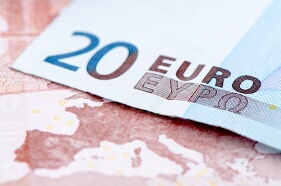The euro ended the week among the weakest currencies due to the dovish stance of the European Central Bank and the political crisis in Spain.
The ECB reduced the size of its monthly asset purchases but extended the duration of the asset purchase program, as was widely expected. But it was said in our forecast:
Market participants will closely watch any nuances in wording of the policy statement and the speech at the press conference that will follow the meeting. Depending on interpretations of the words, markets can push the euro either up or down.
And indeed, markets did not like the fact that the central bank hinted at possibility of additional extension of duration or even increase of the size of the purchases if the economic situation warrants such action.
Political issues also played part in the currency’s weakness. While markets were largely ignoring separatism in Catalonia at first, they had to pay attention after the region openly announced independence. On top of that, two Italy’s wealthiest regions overwhelmingly voted for greater autonomy in a referendum. While it was not outright separatism, and the voting is not binding anyway, the news is additional reason to be worried about the integrity of the European Union.
EUR/USD dropped 1.3% from 1.1764 to 1.1607. EUR/GBP declined from 0.8921 to 0.8838. EUR/JPY slid 1.5% from 133.96 to 131.93.
If you have any questions, comments or opinions regarding the Euro,
feel free to post them using the commentary form below.
